Blockchain
LedgerFi’s ($LFT) Token Pre-sale: More than 8% sold out in less than 30 min on XDC Sale
Published
1 year agoon
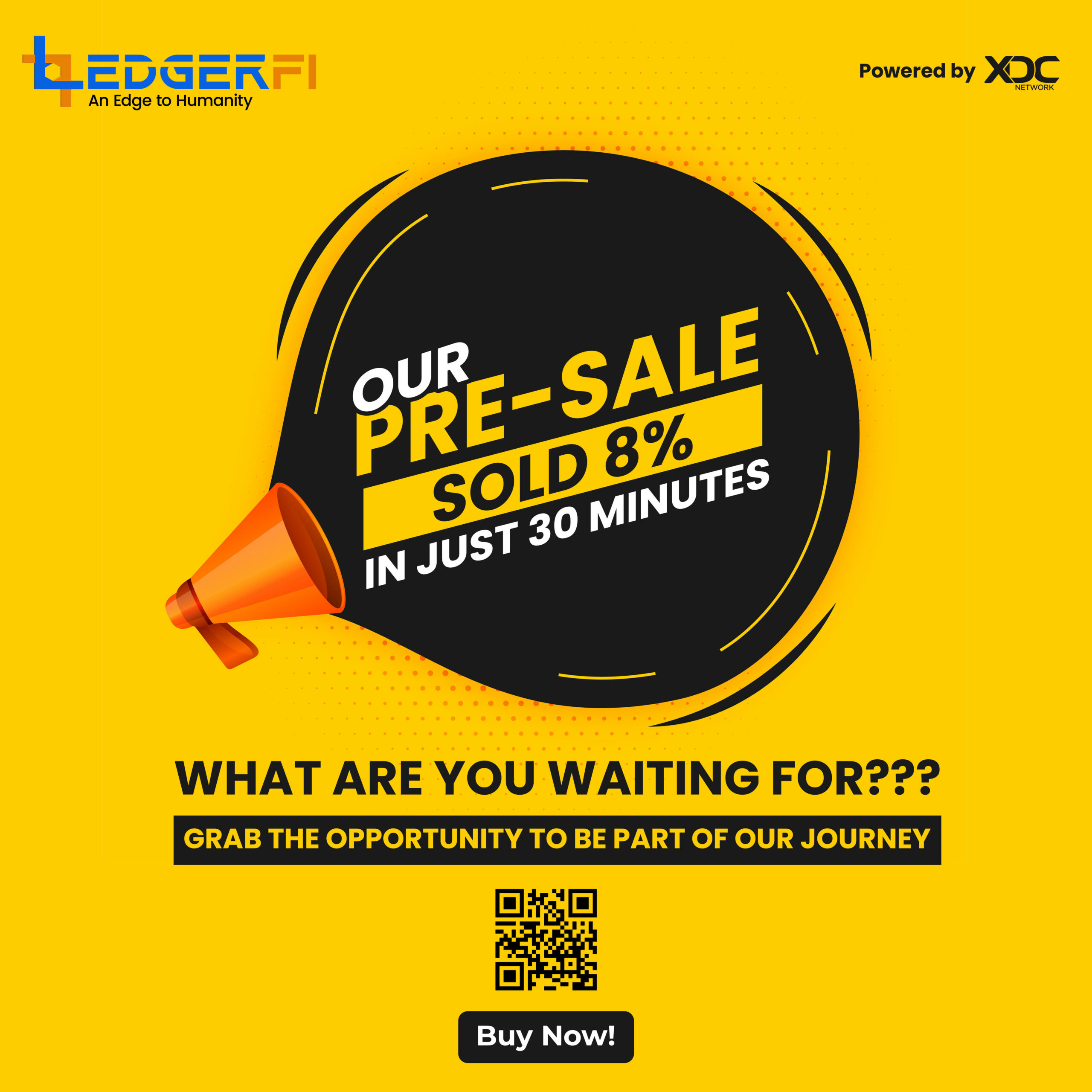
LedgerFi, a leading decentralized web 3.0 secure communication platform built on the XDC Network, is excited to announce that their token sale will commence on March 14th, 2021 on XDC Sale. The token sale will offer investors the opportunity to purchase the native $LFT tokens of LedgerFi and join an innovative ecosystem of Decentralized Communication Service integrated with Decentralized Finance for enabling the seamless exchange of digital assets through a unified platform.
LedgerFi has envisioned to become the world’s first Decentralized Digital Asset Exchange (DDAX) platform through which users can transfer all types of digital assets with a military grade security, cryptographic encryption, privacy and prevention from cyber attacks using the power of Blockchain technology.
LedgerFi is a one-stop-shop for DeFi users that provides access to various communication protocols and services in the industry such as Ledger Mail which is already live in the market and it has 750K users exchanging 2M+ emails,and upcoming products like
- Ledger Chat: The Decentralized Instant Messaging Solution enabling users to instantly chat with peers without worrying about centralized governance. LedgerChat allows users to seamlessly communicate with each other without compromising their Digital Identity & Data Sovereignty. It’s in beta at the moment.
- Ledger Live: The Decentralized Audio & Video Call Platform allows individuals & businesses to connect with each other in real-time. The centralized access point utilized in conventional VoIP solutions is eliminated with blockchain based communication technologies. Eliminating the hassle of handling centralized, cumbersome & hackable legacy platforms with the high-performing next-gen solution. Instead, a blockchain based communication system sends the signal from the calling party to a receiving number, which is then replaced by a dispersed network shared by all network users.
- Ledger Pay: The Decentralized Cross-Border Remittance platform providing human-readable, interoperable & lightning-fast payment transfer capabilities for financial inclusion of the unbanked individuals.
- Ledger Mint: Metaverse Interconnected NFT Transfer Hyper-personalized social connectivity for transferring, exchanging & showcasing NFTs and other digital assets through an interactive & interconnected platform.
Token Sale Details
- Presale Address: 0x7db6AaF98bDFE47f197a3b1bbC3Cfe6CB0f302c4
- Token Address: 0x65d358C56Ff2E64C007060D5D4dF308986734f5C
- Total Supply: 400,000,000 LFT
- Soft Cap: 7,500,000 XDC
- Hard Cap:15,000,000.0 XDC
- IDO Rate: 1.5 LFT per XDC
- Listing Rate: 1.0 LFT per XDC
- Liquidity %: 51
- Min Contribution: 4,000 XDC
- Max Contribution: 400,000 XDC
- IDO Start Time: 14 Mar 2023, 19:30
- IDO End Time: 05 Apr 2023
- Liquidity Unlock Date: 05 May 2023
About LedgerFi
LedgerFi provides a web 3.0 communication service built on blockchain technology for secure communication through email, chat & payment applications. LedgerFi provides blockchain based Decentralised communication service & Decentralised Digital Assets Exchange for secure communication.
Media contact
ZEX PR WIRE
ag@zexprwire.com
You may like
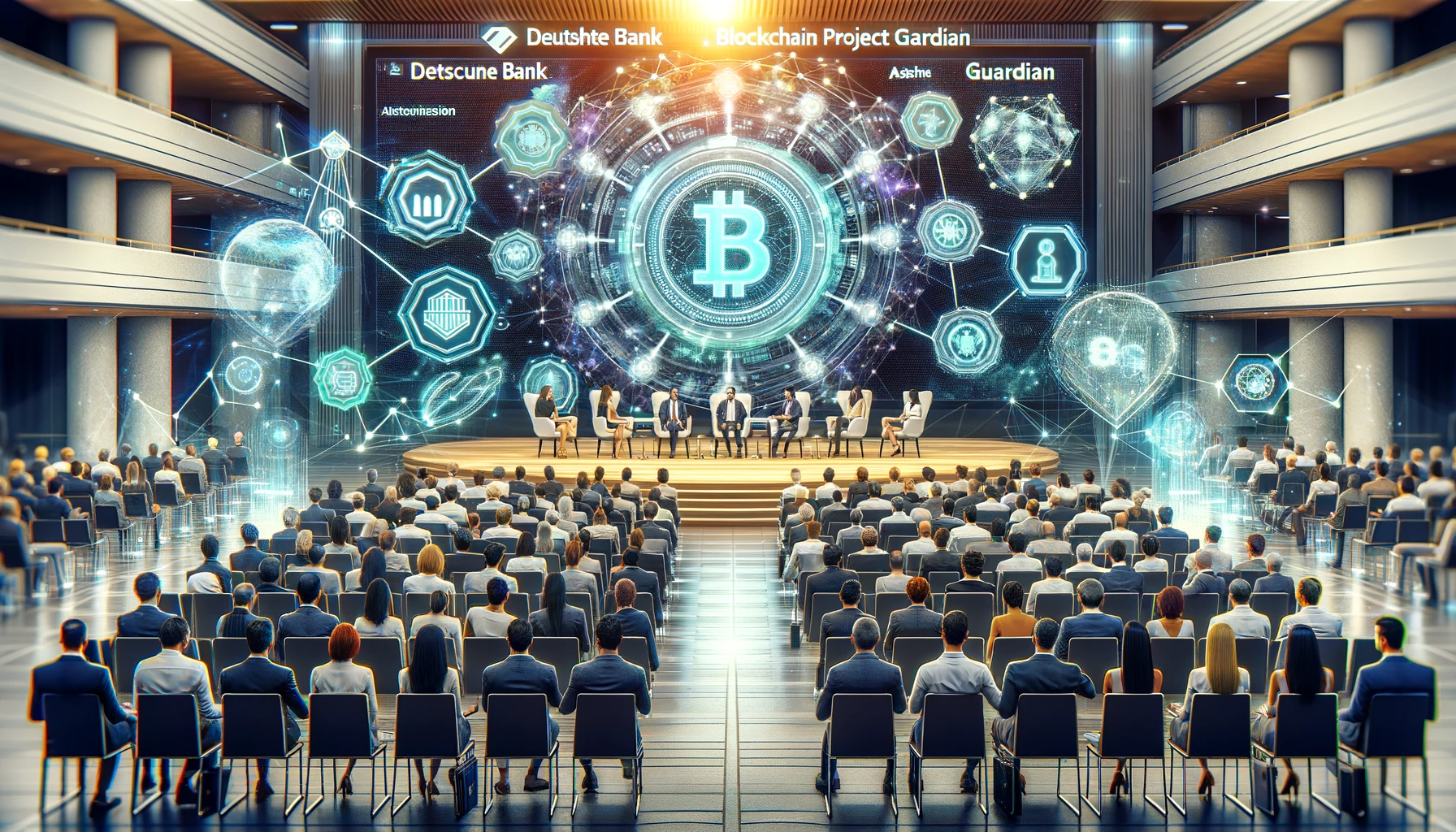
Deutsche Bank Blockchain Project Guardian is a groundbreaking initiative spearheaded by the Monetary Authority of Singapore (MAS). This project is set to explore the expansive potential of asset tokenization and decentralized finance (DeFi) within the financial sector.
This project is part of a larger effort by MAS to blend traditional financial practices with innovative blockchain technologies, aiming to enhance the efficiency, transparency, and security of financial transactions across various asset classes.
While MAS strongly discourages and seeks to restrict speculation in cryptocurrencies, we see much potential for value creation and efficiency gains in the digital asset ecosystem. This is why we are actively collaborating with the industry to foster a responsible and innovative digital asset ecosystem.
As we enter this new phase of Project Guardian, we look forward to collaborating with fellow policymakers and industry practitioners to jointly develop effective frameworks to guide the sound development of future financial networks.
Leong Sing Chiong, Deputy Managing Director (Markets and Development), MAS
Project Guardian, first introduced by MAS, serves as a collaborative platform that engages multiple top-tier global financial institutions, regulatory authorities, and technology companies.
The initiative focuses on experimenting with and understanding blockchain’s applicability in areas like asset management, fixed income, and foreign exchange.
For Deutsche Bank, this participation signifies a crucial step towards embracing digital transformation and preparing for future financial ecosystems dominated by digital assets and technologies.
Deutsche Bank’s involvement highlights its commitment to innovation and its strategic approach to leveraging new technologies to stay competitive in the rapidly evolving financial landscape.
By participating in Project Guardian, Deutsche Bank aims to explore the practical aspects of blockchain in reducing complexities in asset management, improving transaction speed, and lowering costs, which could revolutionize traditional banking operations and client services.
The bank’s collaboration in this project not only allows it to pilot cutting-edge technologies in a regulatory-compliant environment but also positions it as a forward-thinking leader eager to tap into the emerging market of tokenized assets.
The involvement is expected to yield insights into the scalability and robustness of blockchain applications in real-world financial settings, providing Deutsche Bank with a competitive edge in digital finance.
Deutsche Bank Blockchain Project Guardian Strategic Integration

Deutsche Bank is among the key financial institutions collaborating under the MAS-led Project Guardian, which aims to test the viability and impact of asset tokenization in modernizing financial practices.
This involvement is not merely participatory; Deutsche Bank is actively engaging in pilot projects that test tokenization across several financial sectors, including asset management, fixed income, and foreign exchange, which are crucial to understanding the practical applications and potential disruptions blockchain technology may bring to the financial industry.
Contributing to Project Guardian will bolster our efforts to help shape the new frontier of asset servicing, and strongly position us to contribute to industry progress, and not only anticipate our clients’ needs but exceed their expectations.
Strategic Importance for Deutsche Bank
The strategic importance of Deutsche Bank’s involvement in Project Guardian lies in its potential to redefine financial asset management and transaction processes.
By integrating blockchain technology, Deutsche Bank aims to achieve greater transaction efficiency, enhanced transparency, and improved security measures.
The project allows the bank to explore these technologies in a sandbox environment, mitigating risks while assessing the feasibility of wider implementation across its global operations.
Asset tokenization, as explored in Project Guardian, could significantly lower the barriers to entry for various investment opportunities, allowing for smaller investment denominations and broader investor participation.
The democratization of access to high-value asset markets, which have historically been inaccessible due to their high entry costs and intricate management demands, may result from this development, potentially broadening the clientele of Deutsche Bank.
Expected Benefits and Challenges to Deutsche Bank
The expected benefits for Deutsche Bank include operational efficiencies through streamlined processes and reduced reliance on intermediaries, which can lead to cost savings and faster transaction times.
Moreover, tokenization could enhance liquidity in traditionally illiquid asset classes, a significant advantage in asset and wealth management sectors.
However, the integration of blockchain technology also presents challenges, primarily regulatory and technical. Navigating the complex regulatory landscape, ensuring compliance with international financial regulations, and managing the technical aspects of blockchain integration are critical hurdles that Deutsche Bank will need to overcome.
As Project Guardian progresses, Deutsche Bank is poised to play a pivotal role in shaping the regulatory frameworks and industry standards for blockchain in financial services, contributing not only to its strategic objectives but also to the broader economic ecosystem’s evolution toward digital assets.
Deutsche Bank’s Strategic Journey in Blockchain and Asset Tokenization

Deutsche Bank’s involvement in Project Guardian marks a significant milestone in its digital transformation journey. By actively participating in this pioneering initiative led by the Monetary Authority of Singapore (MAS), Deutsche Bank is positioning itself at the forefront of the financial industry’s shift towards blockchain technology and asset tokenization.
This strategic move is indicative of the bank’s commitment to innovation and its vision to redefine the landscape of financial services.
Key Takeaways:
- Leadership in Innovation: Deutsche Bank’s participation in Project Guardian not only highlights its role as an innovator but also as a leader in shaping the future of financial technologies. The project allows Deutsche Bank to explore and potentially set new standards for the use of blockchain in financial services, ensuring it remains competitive in a rapidly evolving digital economy.
- Enhanced Client Services and Operational Efficiencies: Through blockchain and tokenization, Deutsche Bank can offer its clients more diverse and accessible investment opportunities while also achieving greater operational efficiency and security in its transactions. These advancements could lead to improved customer satisfaction and loyalty, which are crucial in the competitive banking sector.
- Navigating Challenges: The journey has its challenges, including regulatory hurdles, technical integration issues, and the need for substantial cultural shifts within the organization. How Deutsche Bank addresses these challenges will be critical to its success and could provide valuable insights into the resilience and adaptability of large financial institutions embracing new technologies.
Challenges Facing Deutsche Bank
- Regulatory Compliance and Uncertainty: As blockchain and tokenization are relatively new technologies in the financial sector, regulatory frameworks are still developing. Deutsche Bank must navigate these evolving regulations and ensure compliance across different jurisdictions, which can be complex and resource-intensive.
- Technical Integration and Security Concerns: Integrating blockchain technology with existing financial systems poses significant technical challenges. Ensuring the security and robustness of these systems against cyber threats is crucial, as blockchain networks can be susceptible to various security risks.
- Market and Technological Risks: The adoption of blockchain and tokenization involves exposure to market risks related to the volatility of digital assets and technological risks associated with the deployment of new technologies. Managing these risks effectively is essential to prevent potential financial losses and reputational damage.
- Cultural and Organizational Change: Implementing blockchain technology requires significant changes in organizational processes and culture. Deutsche Bank will need to invest in training and development to prepare its workforce for new operational paradigms associated with digital assets and tokenization.
Future Outlook:
As Project Guardian continues to evolve, Deutsche Bank’s ongoing involvement will likely influence not only its operations but also the broader financial industry’s approach to digital assets and blockchain technology. The insights gained from this initiative could lead to more robust, efficient, and inclusive financial systems globally.
Deutsche Bank’s strategic investment in blockchain technology through Project Guardian reflects its proactive approach to adopting next-generation technologies.
This involvement is set to not only transform its internal operations but also to potentially redefine global financial practices, making it a key player in the future of digital finance.
FAQs
1. What is Project Guardian?
Project Guardian is an initiative led by the Monetary Authority of Singapore (MAS) that explores the potential of blockchain technology and asset tokenization in the financial industry. It involves collaboration with global financial institutions to pilot innovative applications in areas such as asset management, fixed income, and foreign exchange.
2. Why is Deutsche Bank participating in Project Guardian?
Deutsche Bank is participating in Project Guardian to leverage blockchain technology to enhance the efficiency, transparency, and security of financial transactions. This involvement aligns with its strategic goals of digital transformation and innovation in financial services.
3. What benefits does blockchain technology offer to Deutsche Bank?
Blockchain technology offers Deutsche Bank multiple benefits, including improved operational efficiencies, enhanced liquidity for illiquid assets, expanded market access, and the ability to provide innovative financial products to a broader range of investors.
4. What are the challenges Deutsche Bank faces with blockchain adoption?
Deutsche Bank faces several challenges with blockchain adoption, including regulatory compliance, technical integration of blockchain with existing systems, security concerns, and the need for organizational adaptation to new technologies.
5. How could asset tokenization change the financial industry?
Asset tokenization could revolutionize the financial industry by making investments more accessible, increasing the liquidity of traditionally illiquid assets, and simplifying complex financial operations through automation and transparency.
6. What is the future outlook for Deutsche Bank’s blockchain initiatives?
The future outlook for Deutsche Bank’s blockchain initiatives is promising, with the potential to influence how financial services are delivered and consumed significantly. Continued participation in projects like Guardian could position Deutsche Bank as a leader in the adoption of digital finance technologies.
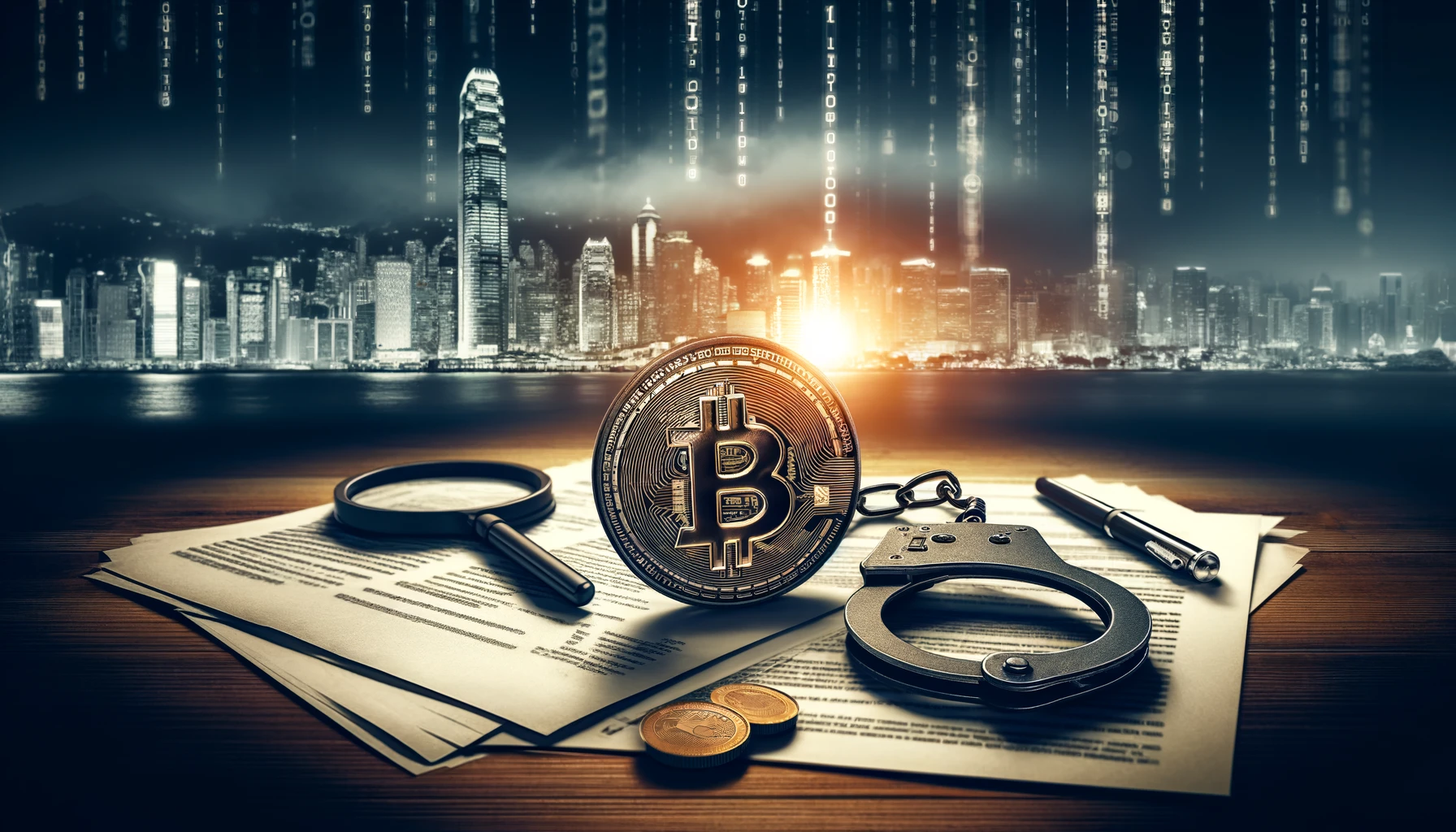
In a significant move, Hong Kong authorities have cracked down on a fake crypto exchange, Quantum AI, allegedly linked to Elon Musk.
The scam, leveraging Musk’s identity and reputation, has duped unsuspecting investors into losing significant sums.
Overview of the Crackdown on the Fake Crypto Exchange
The Hong Kong Securities and Futures Commission (SFC) swiftly responded to reports of a fake cryptocurrency exchange allegedly linked to Elon Musk.
Hong Kong Securities and Futures Commission (SFC) Action:

The SFC warned investors and decided to shut down the fraudulent platform. By leveraging its regulatory authority, the SFC aimed to protect investors from falling victim to the elaborate scam and uphold the integrity of Hong Kong’s financial markets.
According to the report, Quantum AI utilized deepfake videos and images on its website and social media platforms to falsely suggest an association with Elon Musk. This deceptive tactic misled investors into believing that the platform had Musk’s endorsement or involvement.
Discovery of the Fake Exchange:
The fake exchange was discovered following multiple investor complaints and the SFC’s diligent monitoring of suspicious activity. The fraudulent platform impersonated Musk through fake social media profiles and a website designed to mimic genuine exchanges.
The SFC worked closely with international law enforcement agencies to uncover the scam’s masterminds and prevent further victimization.
Importance of Investor Protection:
The crackdown underscores the significance of protecting investors in the ever-evolving world of cryptocurrency trading. The SFC’s proactive measures demonstrate the importance of regulatory oversight in ensuring that crypto platforms operate transparently and ethically.
Modus Operandi of the Fake Exchange

Impersonation of Elon Musk:
Scammers took advantage of Elon Musk’s enormous popularity and influence in cryptocurrency by creating fake social media profiles and websites that impersonated him.
These platforms featured doctored images, counterfeit endorsements, and fabricated quotes, all giving the impression that Musk was endorsing and supporting the fraudulent exchange. The scammers designed their website to mimic genuine cryptocurrency exchanges with realistic dashboards and transaction fees.
Exploitation of Popular Crypto Trends:
In addition to leveraging Musk’s name, the scammers capitalized on the rising popularity of cryptocurrencies like Bitcoin, Ethereum, and Dogecoin.
They promoted deceptive investment schemes promising extraordinary returns, appealing to crypto enthusiasts’ fear of missing out (FOMO). Buzzwords like “blockchain,” “decentralization,” and “DeFi” were used strategically to attract novice investors.
Deceptive Promotions and Marketing Tactics:
The fraudulent exchange lured investors with enticing promotions such as “limited-time offers” and “exclusive investment opportunities.” Victims were urged to deposit their cryptocurrencies quickly to secure their spots.
Once investors transferred their assets, the scammers either disappeared or fabricated technical issues to prevent withdrawals.
Impact on Victims
The widespread impact of this scam underscores the importance of thorough due diligence and regulatory oversight in the volatile world of cryptocurrency trading.
Financial Losses:
Victims of the fake exchange experienced significant financial losses. The scammers successfully defrauded unsuspecting investors of over $165,000 worth of cryptocurrency.
Many investors, drawn in by the promise of high returns and the false endorsement by Elon Musk, invested their life savings or substantial amounts, only to find themselves unable to withdraw their funds.
Psychological and Emotional Impact:
Beyond financial losses, the scam inflicted psychological and emotional distress on the victims. Many investors felt betrayed and humiliated for falling prey to the scheme.
The scammers exploited common psychological tactics such as the fear of missing out (FOMO) and urgency, leaving victims feeling manipulated and devastated. Some investors reported sleepless nights and anxiety over their lost investments.
Broader Implications for Crypto Regulation
Regulatory Challenges in the Crypto Space:
The crackdown on the fake exchange highlights the difficulties regulators face in policing decentralized and pseudonymous cryptocurrency transactions. The rapidly evolving nature of crypto scams demands international cooperation and constant vigilance.
Investor Education and Awareness:
Investor education plays a crucial role in preventing similar scams. Authorities emphasize the importance of verifying exchange licenses, checking URLs, and recognizing red flags in marketing promotions. Stricter regulations and enhanced international collaboration are necessary to safeguard investors and maintain market integrity.
Response from Elon Musk and the Crypto Community
Elon Musk’s Response:
Elon Musk and his representatives swiftly distanced themselves from the scam, emphasizing that neither Musk nor his companies had any connection to the fraudulent exchange.
Musk has previously expressed concerns over misusing his image and reputation for deceptive crypto schemes. He also advocated for increased vigilance among investors and stricter enforcement against scams impersonating public figures.
Crypto Community Reactions:
The broader cryptocurrency community, including major exchanges like Binance, quickly rallied to denounce the scam and raise awareness. Binance published warnings and educational content to help investors spot fake exchanges and urged them to conduct thorough research before investing.
Calls for Greater Regulatory Oversight:
The incident sparked renewed calls for stricter regulations on crypto exchanges and greater international cooperation. Industry leaders emphasized the need for self-regulation within the crypto community to identify and flag suspicious activity.
Summary of Key Points: Conclusion and FAQ
The crackdown on the fake cryptocurrency exchange allegedly linked to Elon Musk underscores the importance of vigilance in the rapidly evolving crypto space.
The Hong Kong Securities and Futures Commission (SFC) acted swiftly to shut down the scam and protect investors.
The scam exploited Musk’s reputation, leveraging fake social media profiles and deceptive promotions to steal over $165,000 worth of cryptocurrency.
Future of Crypto Regulation in Hong Kong and Beyond:
This incident highlights the need for stricter regulations and international collaboration to combat similar schemes.
Investor education is crucial for identifying red flags and conducting due diligence before investing.
In the future, regulatory bodies and industry leaders must work together to create a safer and more transparent environment for crypto trading.
FAQs
Q: What was the nature of the fake cryptocurrency exchange linked to Elon Musk?
A: The fake cryptocurrency exchange impersonated Elon Musk using doctored images, fake social media profiles, and a website that mimics legitimate exchanges. It falsely claimed to have Musk’s endorsement to lure investors into fraudulent investment schemes.
Q: How did Hong Kong authorities discover the fraudulent exchange?
A: The Hong Kong Securities and Futures Commission (SFC) discovered the scam through investor complaints and suspicious activity monitoring. They collaborated with international law enforcement agencies to uncover the scam’s masterminds.
Q: What are the financial losses attributed to this scam?
A: The scammers defrauded investors of over $165,000 worth of cryptocurrency. Victims were unable to withdraw their funds, leaving them devastated and financially impacted.
Q: How can investors identify a fraudulent crypto exchange?
A: Investors can identify fraudulent exchanges by verifying licenses, double-checking URLs, and recognizing red flags like unsolicited promotions and high-return promises. They should also consult official resources and trusted crypto news outlets.
Q: What regulatory measures are being proposed to prevent such scams?
A: Regulators emphasize the need for international collaboration and stricter oversight of cryptocurrency exchanges. Investor education and self-regulation within the crypto community are crucial in identifying and flagging suspicious activities.
Blockchain
Monero P2P Trading Platform Closes and Raises Concerns
Published
7 days agoon
May 9, 2024By

Monero P2P trading platform closes and raises concerns within the community of cryptocurrency users who value privacy.
The closure of this significant platform, which had long been a hub for Monero enthusiasts, underscores the challenges and risks facing decentralized exchanges in today’s evolving regulatory landscape.
Monero has gained popularity as a privacy-focused cryptocurrency due to its ability to provide secure and anonymous transactions, making it a preferred choice for users prioritizing privacy.
However, the platform’s closure was attributed to a mix of factors, including increased regulatory pressures, operational challenges, and security vulnerabilities.
This development impacts Monero’s market liquidity and raises questions about the future of decentralized platforms.
We will look into the reasons behind the shutdown, its effect on the Monero community, and the potential future of decentralized cryptocurrency trading platforms in an ever-changing environment.
Understanding Monero and P2P Trading Platforms
Monero (XMR) is a privacy-centric cryptocurrency that aims to provide secure, untraceable, and fungible transactions.
Monero (XMR):
Unlike Bitcoin, which offers pseudo-anonymity, Monero employs advanced cryptographic techniques like Ring Signatures, Ring Confidential Transactions (RingCT), and stealth addresses to ensure transaction privacy. These features make Monero a popular choice among individuals prioritizing financial privacy and anonymity.
P2P Trading Platforms:
Peer-to-peer (P2P) trading platforms enable direct transactions between buyers and sellers without intermediaries, providing a decentralized alternative to traditional exchanges. For privacy-focused cryptocurrencies like Monero, P2P platforms create an environment aligned with users’ desire for anonymity, often offering secure escrow systems, reputation-based trading, and end-to-end encrypted communication.
The Platform’s History:
The platform emerged as a significant player in Monero trading, providing a space where like-minded users could trade directly and securely. Its ease of use and privacy-centric features quickly attracted a loyal user base, making it a critical node in the Monero trading ecosystem. However, its recent closure has left a noticeable gap, compelling traders to seek alternative venues.
Monero P2P Trading Platform Closes Because of Presure Regarding privacy focused trading.
Increased regulatory scrutiny on cryptocurrencies has created a challenging environment for decentralized platforms. Many governments are pushing for tighter controls on crypto exchanges to curb illicit activities.
Regulatory Pressures:
The P2P Monero platform was under immense pressure due to its association with privacy-focused trading. Compliance requirements, such as know-your-customer (KYC) regulations and anti-money laundering (AML) policies, posed significant challenges, prompting the platform’s operators to shut down rather than compromise their values or face legal consequences.
Operational Challenges:
Decentralized platforms require robust infrastructure to handle transactions securely and efficiently. However, maintaining such infrastructure has significant operational challenges, including server management, user support, and technical updates. The Monero P2P platform struggled to keep up with increasing operational demands, particularly as its user base grew. Technical glitches, insufficient resources, and increasing server costs further strained the platform’s sustainability.
Security Concerns:
Security is paramount in any trading platform, but decentralized exchanges face unique challenges. The Monero platform had to combat various security threats, including scams, hacks, and fraudulent listings. Despite employing security measures like escrow systems and reputation-based trading, malicious actors still exploited vulnerabilities. Rising security issues compromised user funds and eroded trust in the platform, accelerating its decline.
Impact on the Monero Community
Liquidity Challenges:
The closure of the P2P trading platform has affected Monero’s liquidity, particularly in the P2P market segment. With fewer active marketplaces supporting Monero, traders have experienced challenges finding reliable platforms, which has reduced trading activity and liquidity. This decline makes it harder for buyers and sellers to conduct transactions quickly and at favourable prices.
Alternative Trading Solutions:
Despite the closure, Monero trading continues through various other avenues. Decentralized exchanges (DEXs) like Bisq and open-source platforms like LocalMonero offer alternative trading solutions. Centralized exchanges (CEXs) like Kraken and Binance also facilitate Monero trading, albeit with varying degrees of privacy. OTC (over-the-counter) markets and private trading networks also provide options for traders seeking more personalized trading experiences.
User Trust and Confidence:
The sudden shutdown has shaken user confidence in decentralized platforms, particularly those prioritizing privacy over compliance. Many users have expressed concerns about the reliability and security of P2P platforms, prompting a shift towards more regulated exchanges or private trading networks. Restoring user trust will require significant improvements in platform security, transparency, and regulatory compliance.
Parrot Bamboo said at Binance Square:
📣 LocalMonero, the largest peer-to-peer Monero trading platform, announced that it is closing after approximately 7 years of operation. $XMR

The Future of Decentralized Cryptocurrency Platforms
Regulatory Compliance:
For decentralized platforms, regulatory compliance is still a major obstacle. A careful balance must be struck between navigating changing international rules and protecting user privacy.
Platforms must adopt innovative compliance strategies, such as decentralized KYC protocols or community-driven governance models, to remain operational without compromising their core values.
Security Innovations:
Security innovations must be prioritized on decentralized platforms to avert security breaches and restore confidence.
Implementing advanced encryption, multi-signature wallets, and decentralized identity verification can enhance platform security.
Additionally, community-based security audits and bug bounty programs can help identify and address vulnerabilities proactively.
Decentralized Exchange Development:
The growth of decentralized exchanges (DEXs) signifies shifting towards a more secure and user-centric trading model. DEXs like Uniswap and Bisq are gaining traction due to their non-custodial nature and robust security features. However, challenges such as low liquidity, user experience issues, and regulatory uncertainty still hinder their widespread adoption.
Improving cross-chain interoperability, incentivizing liquidity providers, and simplifying user interfaces could accelerate DEX development.
Final Thoughts and FAQ:
The closure of a prominent Monero P2P trading platform has highlighted the complexities and challenges of operating in a rapidly changing regulatory environment. While privacy-centric cryptocurrencies like Monero appeal to users seeking anonymity, platforms supporting these currencies must navigate a delicate balance between compliance and user privacy. The shutdown has affected Monero’s liquidity and raised concerns within the community, but alternatives such as decentralized exchanges and private trading networks still offer viable trading solutions. Moving forward, decentralized platforms must prioritize security, compliance, and innovation to regain user trust and continue providing safe, reliable environments for peer-to-peer trading. The future of decentralized trading depends on striking the right balance between privacy, security, and adaptability to an evolving regulatory landscape.
FAQs
Q.: Why did the Monero P2P trading platform close?
A.: The platform cited regulatory pressures, security concerns, and operational challenges as primary reasons.
Q.: What alternatives exist for Monero P2P trading?
A.: Decentralized exchanges (DEXs) like Bisq and other P2P platforms still support Monero trading.
Q.: How does this closure affect Monero trading?
A.: It may reduce liquidity and impact confidence in P2P platforms.
Q.: What makes Monero unique among cryptocurrencies?
A.:Monero is known for its strong privacy features, such as RingCT and stealth addresses.
Q.: Is Monero still safe to trade?
A.: Yes, trading Monero remains safe, provided users utilize trusted platforms with robust security features.

Deutsche Bank Blockchain Project Guardian



XRP Market Surge: The End of 7-Year Accumulation



Hong Kong Cracks Down on Fake Crypto Exchange



Monero P2P Trading Platform Closes and Raises Concerns



WEMADE and WEMIX Win “Best Web3 Gaming” at MENA Games Industry Awards 2024



Cryptocurrency News Today Top Stories May 7, 2024



Cardalonia Aiming To Become The Biggest Metaverse Project On Cardano



WOM Protocol partners with CoinPayments, the world’s largest cryptocurrency payments processor



P2P2C BREAKTHROUGH CREATES A CONNECTION BETWEEN ETM TOKEN AND THE SUPER PROFITABLE MARKET



ETHERSMART DEVELOPER’S VISION MADE FINTECH COMPANY BECOME DUBAI’S TOP DIGITAL BANK



WOM Protocol Recommended by Premier Crypto Analyst as only full featured project for August



Project Quantum – Decentralised AAA Gaming
Trending
-



 Crypto2 years ago
Crypto2 years agoCardalonia Aiming To Become The Biggest Metaverse Project On Cardano
-

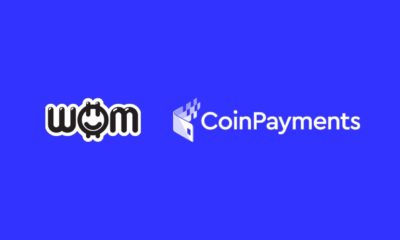

 Blockchain4 years ago
Blockchain4 years agoWOM Protocol partners with CoinPayments, the world’s largest cryptocurrency payments processor
-

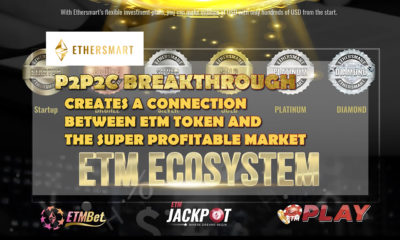

 Press Release3 years ago
Press Release3 years agoP2P2C BREAKTHROUGH CREATES A CONNECTION BETWEEN ETM TOKEN AND THE SUPER PROFITABLE MARKET
-



 Press Release3 years ago
Press Release3 years agoETHERSMART DEVELOPER’S VISION MADE FINTECH COMPANY BECOME DUBAI’S TOP DIGITAL BANK
-



 Blockchain4 years ago
Blockchain4 years agoWOM Protocol Recommended by Premier Crypto Analyst as only full featured project for August
-

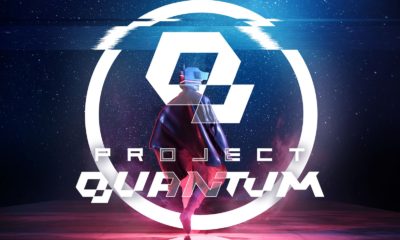

 Press Release3 years ago
Press Release3 years agoProject Quantum – Decentralised AAA Gaming
-

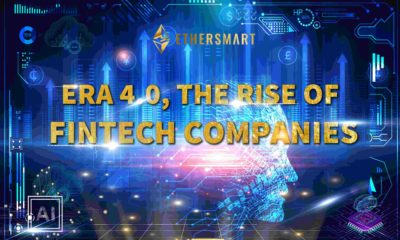

 Press Release3 years ago
Press Release3 years agoETHERSMART DEVELOPER’S VISION MADE FINTECH COMPANY BECOME DUBAI’S TOP DIGITAL BANK
-

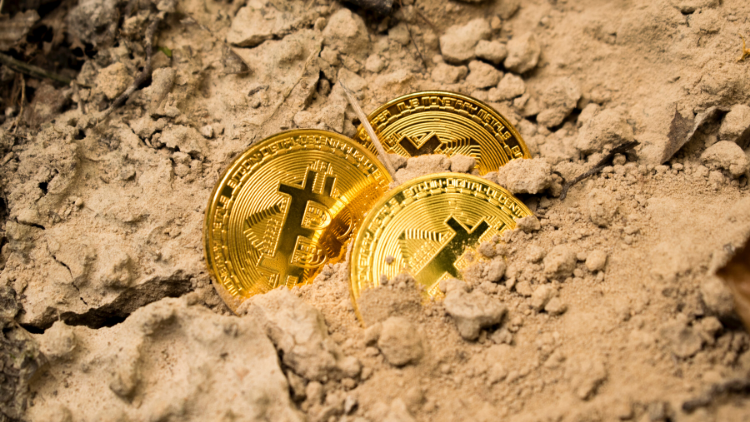

 Blockchain4 years ago
Blockchain4 years ago1.5 Times More Bitcoin is purchased by Grayscale Than Daily Mined Coins
